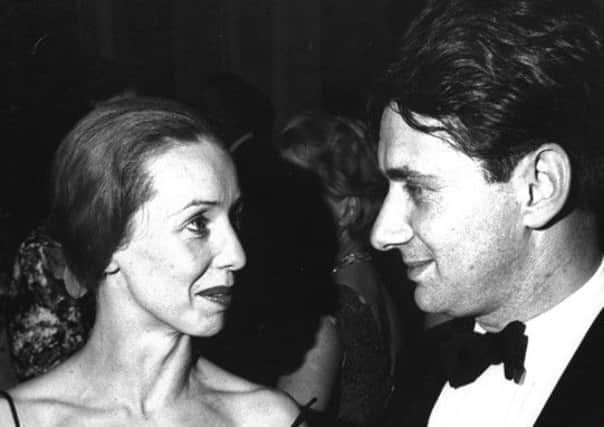Obituary: Charles Gordon, financier


Charles Gordon was an enterprising financier who could often spot a financial opportunity and make a killing. On other occasions he came a cropper. He was married to a principal ballerina of the Royal Ballet, Nadia Nerina, and through her Gordon advised Rudolf Nureyev on his considerable financial affairs.
Just after Nureyev had “leapt to freedom” in the West in 1961 he told Gordon that he was penniless and that he needed money. The flamboyant banker recalled: “Nureyev said to me in his halting English, ‘Charlik, can you help me? I am poor man; no money. I want to make money. Tax free’. ”
Advertisement
Hide AdAdvertisement
Hide AdGordon was to maintain a prudent distance from many of Nureyev’s dealings but there is little doubt that Gordon created the financial system that made Nureyev rich. For many years Nureyev insisted on being paid in cash before a performance. Gordon was instrumental in advising the dancer to set up, perfectly legally, an offshore company in Luxembourg to accommodate all his world-wide earnings - without any tax deductions.
Gordon was a charismatic and innovative financier who with much foresight was an early investor in such profitable enterprises as NCP, Brighton Marina, the fast-expanding hamburger chain of Wimpy and Carmen Rollers. In 1970 he established his own merchant bank, with blue-chip City backing from Spey Holdings. However, many of their investments proved unwise and Gordon was ousted as chief executive and the business was sold.
Gordon transferred his energies to a new venture, Cedar Holdings, an early form of a venture capital company which joined a growing number of “fringe banks” in the City. He had backing from numerous City institutions and the Morrison family from Glasgow who had made money as drapers in the city. The father, Jack Morrison, was chairman of Cedar and his son Michael was a director.
Cedar was principally concerned in the second mortgage market and was caught up in the financial turmoil of 1973. The Bank of England launched its rescue “lifeboat scheme” to bail out the many secondary banks in trouble. After being refinanced, Cedar was sold to Lloyds and Scottish.
Somewhat bitter and unrepentant Gordon wrote his account of the dramatic events some years later in The Cedar Story: The Night The City Was Saved.
Charles Gordon was the son of a Jewish engineer whose family emigrated first to South Africa and later to London. Gordon attended Perse School, Cambridge and then read English and Law at Christ’s College, Cambridge. He initially worked for his father but he had met Nerina while a student at university and when they announced their engagement his father cut him off as she was not Jewish.
His father was to soften his opinion and took pride in her stardom with the Royal Ballet. She memorably created Lise in Frederick Ashton’s La Fille Mal Gardee – a role she often danced in Edinburgh when the company toured outside London. The Gordons also came north when she danced at several Edinburgh Festivals in the Fifties.
After Cambridge, he worked for the property division of the Investors Chronicle where he met the property magnate Jack Cotton, for whom Gordon became a financial consultant. His firm, City Centre Properties, was spearheading the redevelopment of bomb-damaged London and making a fortune. Gordon also prospered.
Advertisement
Hide AdAdvertisement
Hide AdGordon then became a senior executive at the City merchant bank of Hambros, where he set up many large property deals – notably the development of Bishopsgate in the City and managed many wealthy accounts such as Nureyev’s. The Gordons lived in some splendour in a grand house opposite the Victoria & Albert Museum in London and had a sumptuous flat in Monaco owned by the Monaco royal family.
His wife retired from the Royal Ballet in 1969 and after the turbulent demise of Cedar Holdings Gordon operated in the property market on his own. That did not work out and he was declared bankrupt in 1973.
They lived in a much smaller apartment in Monaco and in 1984 Gordon wrote his account of the two major post-war property developers (Cotton and Charles Clore) in The Two Tycoons. In 1998 he had one more successful throw of the financial dice. With the Kuwait Investment Office and German bank Depfa, Gordon formed a consortium that developed a 13-acre site by the Tower of London.
Gordon made many millions from the deal but proceeded to lose the funds through injudicious investments in a solar energy project to supply energy panels on the roofs of airport car parks and along motorways.
Gordon was an imaginative, if flawed, financier. Colleagues maintain many of his ventures were ahead of their time. Nerina died in 2008. There were no children.